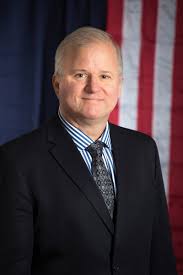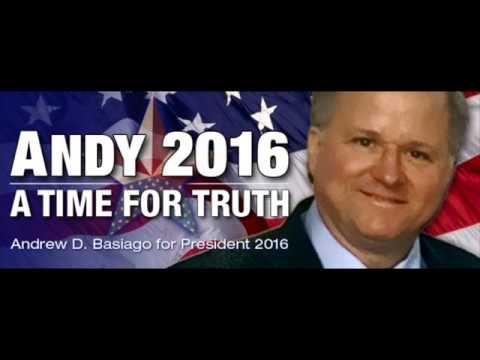
Andy Basiago for President 2016 - A Time for Truth
Andrew D. Basiago, J.D., M.C.R.P. (Dist), M.Phil. (Cantab), the team leader of Project Pegasus and the founder and president of MARS, is an American lawyer, writer, chrononaut, and 21st century visionary.
Andy served in Project Pegasus at the dawn of the Time-Space Age and was one of humanity’s first Mars explorers.
He is a prominent figure in the Truth Movement leading a campaign to lobby the US government to disclose such truths as the fact that the US has achieved “quantum access” to past and future events and has used time travel to place a secret US presence on Mars.
Andy has been identified as the first of two “planetary-level whistle blowers” predicted by the Web Bot, which analyzes the content of the World Wide Web to discern global trends.
His Truth Campaign about time travel and life on Mars is based on direct, personal experience serving on two US defense projects.
In the late 1960’s and early 1970’s, Andy was a child participant in Project Pegasus, which was the US time-space exploration program at the time of the emergence of time travel in the US defense-technical community.
He was called back into government service in the early 1980’s, when he made numerous visits to Mars after being tapped to join the CIA’s Mars “jump room” program.
For over a decade, Andy has investigated his secret project experiences on a quest to prove them and communicate them to others.
Soon, he will publish a tell-all book that will reveal the true story of his awe-inspiring and terrifying experiences time traveling for the US government.
Andrew D. Basiago was born on September 18, 1961 in Morristown, New Jersey, the youngest of five children, and grew up in Northern New Jersey and Southern California.
Andy was identified in early childhood as an “Indigo” child with special abilities, including the ability to use his mind to levitate small objects and to perform telepathy by reading the minds of others.
A past member of Mensa, the high IQ society, he holds five degrees, including a BA in History from the University of California at Los Angeles (UCLA) and a Master of Philosophy from the University of Cambridge.
While an undergraduate at UCLA, Andy studied American history during the day while attending a night school in strategic intelligence administered by the Naval Postgraduate School.
Upon graduating from UCLA in 1984, he became a journalist and protégé of editor Norman Cousins of the Saturday Review, who once compared him to Robert M. Hutchins and nominated him to be the editor of the Bulletin of the Atomic Scientists.
Andy was inspired by a meeting with futurist Buckminster Fuller in 1981 to pursue a career in environmental affairs. After they met, Fuller wrote: “Andrew D. Basiago’s integrity augurs well for humanity’s continuance in (the) Universe.”
He began his public career writing articles about urban affairs for Los Angeles newspapers, national periodicals, and the Cousteau Society journal Calypso Log.
Andy studied environmental law at Lewis & Clark Law School in Portland, Oregon, and then went on to design nature friendly urban plans for cities in California and study environmental law with Professor Malcolm Grant at Cambridge.
His scholarly papers about “sustainability” have been published in peer-reviewed academic journals in Australia, Britain, and the United States.
Andy was admitted to the Washington State Bar Association in 1996 and maintains a private practice in Washington.
Recently, he edited several leading works related to humanity's contact with extraterrestrial life.
He was the editor of Alfred Lambremont Webre’s book, Exopolitics: Politics, Government, and Law in the Universe (Universe Books, 2005), which uses as a case study human contact with an advanced civilization on Mars.
He also edited The Fátima Trilogy by Dr. Joaquim Fernandes, Fina d’ Armada, and other scholars (Anomalist Books, 2007), a definitive history of the Fátima Incident of 1917 that explores its extraterrestrial aspects.
Andrew D. Basiago is on a crusade as a lawyer and statesman to have the US government disclose its time travel secrets.
Andy believes that lobbying the US government to declassify its secret teleportation capability, so that teleportation can be adopted globally as the leading form of civilian transport, is the most important environmental cause of our time.
He is calling his truth campaign “Project Pegasus” after the secret US time travel program that he served in during his childhood as one of America’s early time-space explorers.
Andy has enthralled listeners with his accounts of his time travel experiences in numerous television and radio interviews.
His appearances on talk radio’s popular Coast-to-Coast AM with George Noory have been hailed as major “disclosure events” and have been popular broadcasts in the history of that show.
Andy has also described his time travel experiences in Project Pegasus during appearances on mainstream TV broadcasts in the United States, Canada, and Mexico.
About his truth campaign as a participant in the US secret space program, he has stated:
"Imagine a world in which one could jump through Grand Central Teleport in New York City, travel through a tunnel in time-space, and emerge several seconds later at Union Teleport in Los Angeles. Such a world has been possible since 1967-68, when teleportation was first achieved by DARPA’s Project Pegasus, only to be suppressed ever since as a secret weapon. When my quest, Project Pegasus, succeeds, such a world will emerge, and human beings linked by teleportation around the globe will proclaim that the Time-Space Age has begun!"
In an effort to establish on Earth that the Mars he visited is inhabited, Andy has also earned distinction as a leading scholar in the Mars anomaly research community.
His paper The Discovery of Life on Mars, published in 2008, was the first work to prove that Mars is an inhabited planet and also the first work ever published on Earth to contain images of humanoid beings on another planet.
After publishing this landmark paper, Andy founded the Mars Anomaly Research Society (MARS), a group that is dedicated to researching, disclosing, and educating the public about life on Mars, revealing the US presence there, and developing the laws and policies that are needed to protect Mars from visitation, exploration, habitation, and colonization by human beings from Earth.
He founded MARS in 2009 after discovering evidence of life in a photograph of the Red Planet beamed back to Earth by NASA’s Mars Exploration Rover Spirit. MARS continues to make breathtaking discoveries of ancient artifacts and biological beings on Mars.
Andy's efforts to prove his Mars findings and bring them to public light have been called “heroic.” Of his Mars anomaly research as the president and founder of MARS, Andy has written:
"I am leading the campaign to achieve political recognition that Mars is inhabited because we must enact an international treaty to protect the ecology and civilization of Mars. We must remember that Mars does not belong to us. Mars belongs to the Martians. If we fail to recognize this, then we will fail our first major test of cosmic citizenship. I believe that the people of the Earth are ready for cosmic citizenship and I believe that they are ready for the truth!"
In 2016, Andrew D. Basiago will be a candidate for President of the United States under the banner "Andy 2016 – A Time for Truth."
Websites:
https://www.facebook.com/groups/Andy2016/
Nicola Tesla's Time Machine: Andy Basaigo, time traveler and Presidential Candidate:
https://www.facebook.com/notes/tom-white/nicola-teslas-time-machine/738375546225008
Andrew D. Basiago - A Time For Truth 2016:
https://www.youtube.com/watch?v=hq4ZMRMZDYo
(2045 30:30+, 8 types of teleportation/time travel 41:25 to 44:45, Mars civilization 58:15 to 1:16:33, 2016 Presidential Campaign 1:16:34 to 1:46:25)








